Ranchi Woman’s Clay & Sawdust Dolls Command Prices of Upto Rs 15000 Each
Shobha Kumari from Ranchi launched Srijan Handicrafts in 1993, to popularise hand-made dolls made using clay, sawdust, and cloth, and showcase India's cultural diversity. In the process, she has also empowered thousands of women from marginal communities.
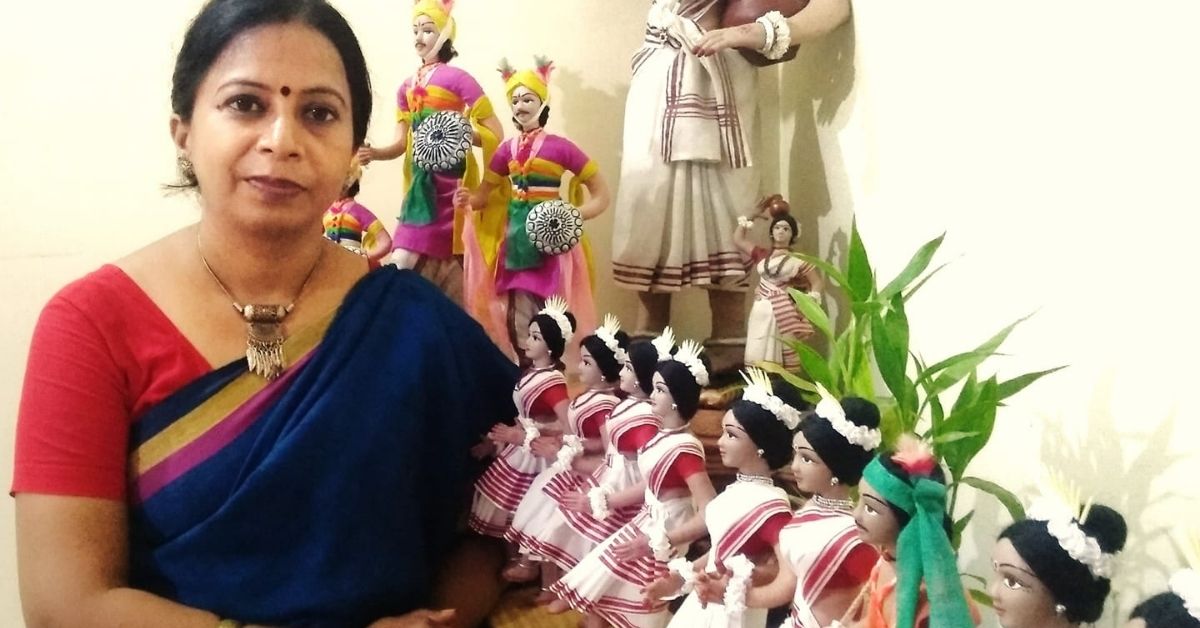
Ranchi-based Saroj Khalko swelled with pride when she first saw a doll mirroring Jharkhand’s traditional attire, Panchi (lower garment) and Parhan (upper garment). The body of the doll had been made with clay and stuffed with cotton, and its hands and legs adorned with gajras and anklets respectively. The skin tone and facial features of the doll also matched those of Saroj and her tribal community. She saw no unrealistic beauty standards, set to make children believe that F-cup breasts and thin limbs were the way to go.
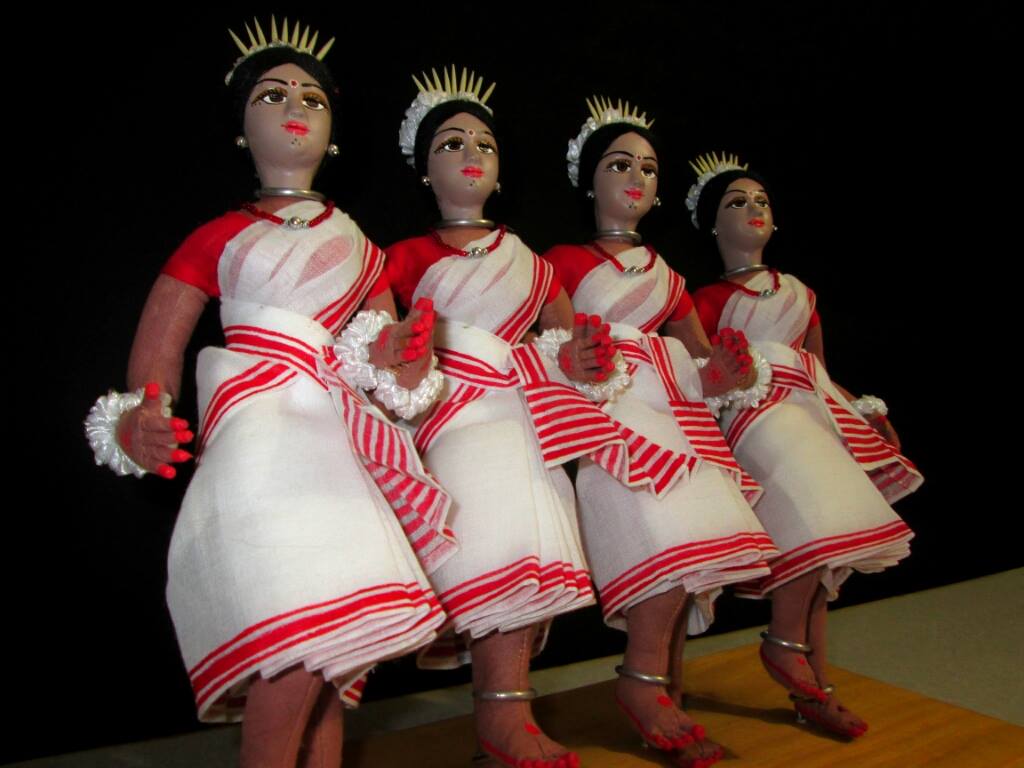
The resplendent attire and indigenous jewellery convinced her that this was the right job for her. She joined Srijan Handicrafts in 2009 with the sole purpose of earning money, but in the process, poured her heart and genuine efforts into crafting beautiful dolls.
“I was forced to look for jobs due to an unforeseen financial emergency, but not having a degree limited my options. That’s when someone suggested I approach Srijan. I learnt sewing and embroidery here. I expected a monthly income of Rs 1,000, but with the right skills, I started earning up to Rs 30,000. I recently purchased a new bike as well,” 38-year-old Saroj tells The Better India.
Similarly, Suman Careketta (38) had also joined Srijan ten years ago to solve her financial crisis. Once a daily wage labourer, Suman now makes around Rs 35,000 every month.
Srijan is a Make-in-India brand that specialises in hand-made dolls made using clay, cloth and sawdust. It was founded by Shobha Kumari (48), a homemaker, in 1993. Today, the carefully crafted dolls are priced anywhere between Rs 899 to Rs 15,000.
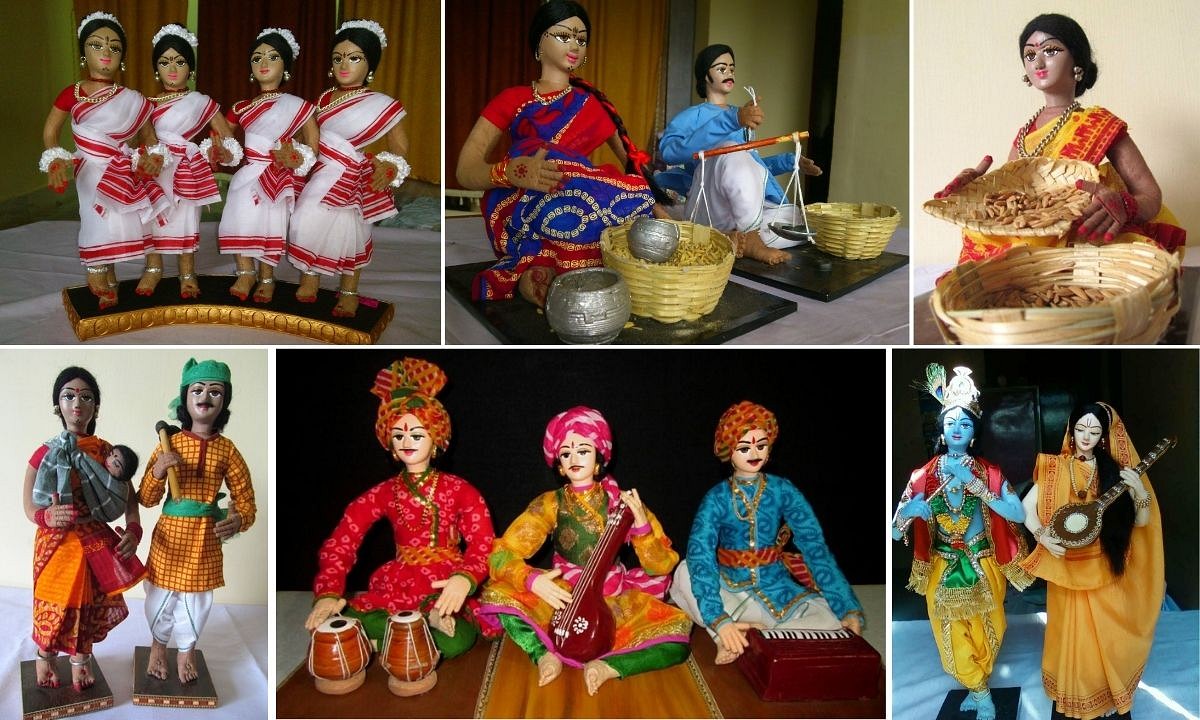
Srijan captures the true essence of ‘Vocal for Local’ as it creates jobs and financially empowers women from marginalised sections, while crafting indigenous dolls that popularise Jharkhand’s culture. The venture received an honorary mention in a recent episode of Mann Ki Baat.
That being said, Srijan is not just any local brand. Even in the pre-internet era, it created a high-end image of itself without spending a hefty amount on marketing, a feat that may seem impossible to many millennial startups.
Shobha talks about how she used skills and strategies to gain prominence in the domestic and international market over the years, the challenges she faced, and why Srijan is more than just a business.
Giving wings to childhood dreams
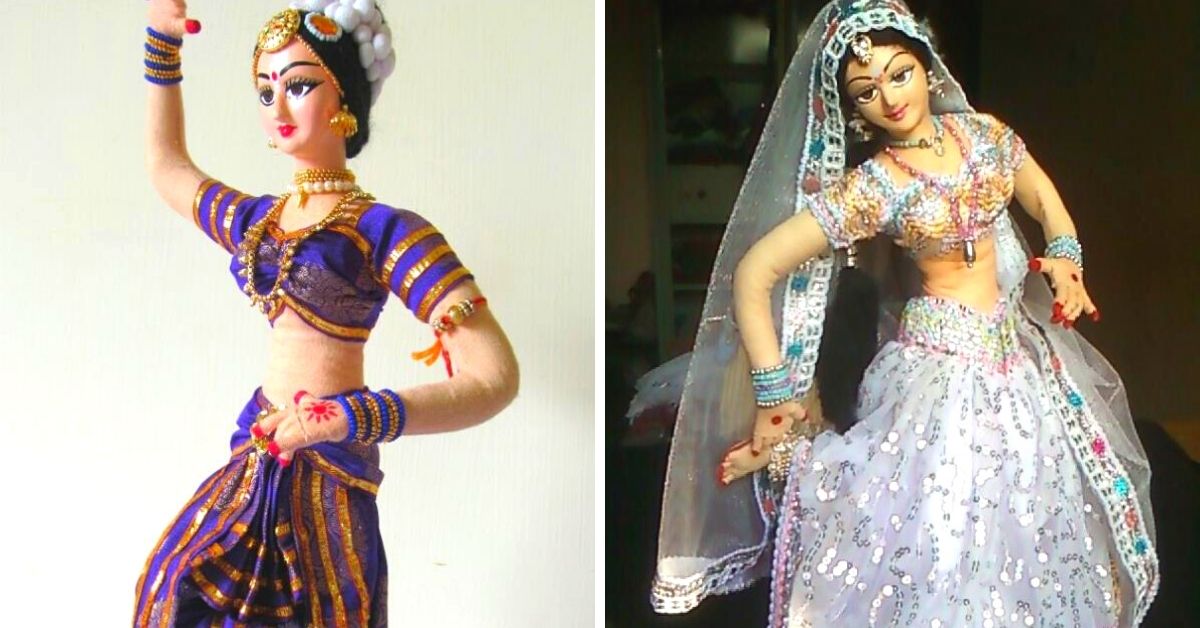
Shobha was born in 1973, an era when a male child was celebrated, but a girl was considered a burden. Across India, every mother groomed her daughter to be an ideal wife. Manners, ethics and culinary skills were things that most daughters would inherit.
Shobha’s house was no exception. But among all customs, she was grateful for the one wherein every mother passed on skills such as sewing, embroidery and knitting.
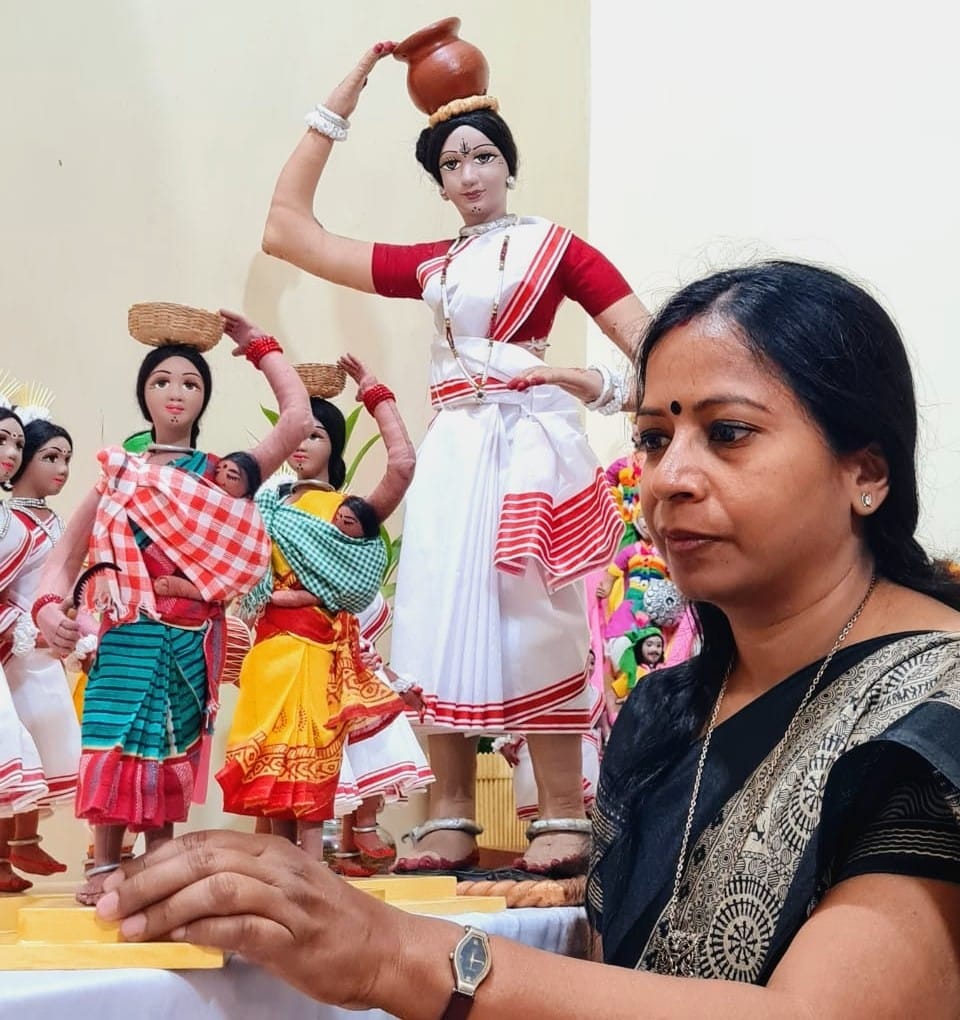
“It’s now, during the COVID-19 pandemic, that people have been paying heed to the concept of Do-It-Yourself (DIY). But I have been stitching my own clothes and bags, and making handicrafts ever since I was in school. While growing up, I had a made-in-Rajasthan doll. I was smitten by it and would study it for days to make a similar one, but with Jharkhand’s attire and features of its community members. That’s how I ventured into artisan doll making,” Shobha says.
Her childhood fascination translated into an entrepreneurial journey after she learnt about the plight of a financially burdened woman in her social circle. She happily trained the woman in making handicrafts and even helped her sell them. A few months later, the tiny stint snowballed into a full-fledged social enterprise — Srijan Handicrafts.
What makes the dolls unique
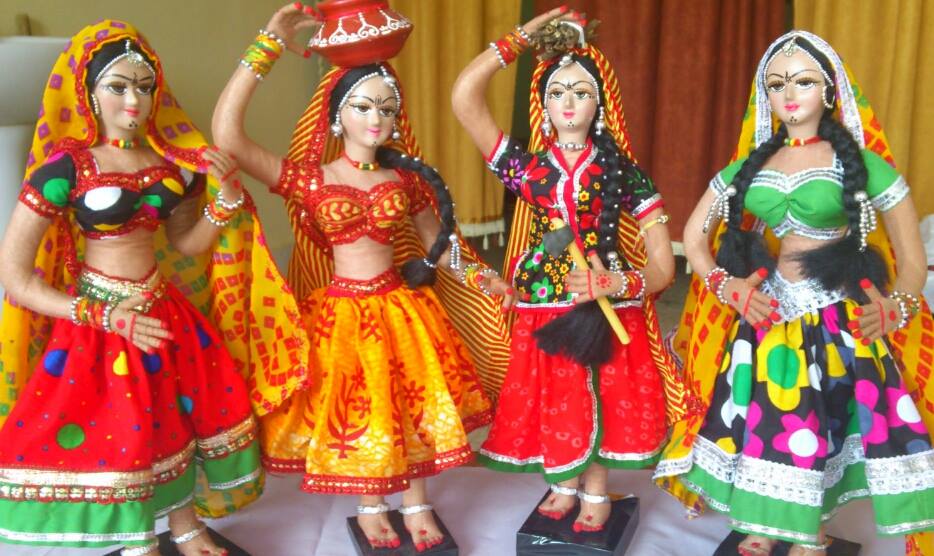
The world was swiftly progressing around Shobha, and she began observing the invasion of a new play culture in the form of barbies. These slim and tall dolls, with sharp noses and curvaceous bodies, were mass-produced in factories, which undermined the painstaking work that went into clay, cloth or wooden-based toys.
If she had to cement her place in the market, she had to be different. “I looked for features that barbies didn’t offer, and the first thing I noticed was how they didn’t display India’s cultural diversity. But before experimenting with other cultures, I had to ensure that I was effectively showcasing my state’s heritage,” she says.
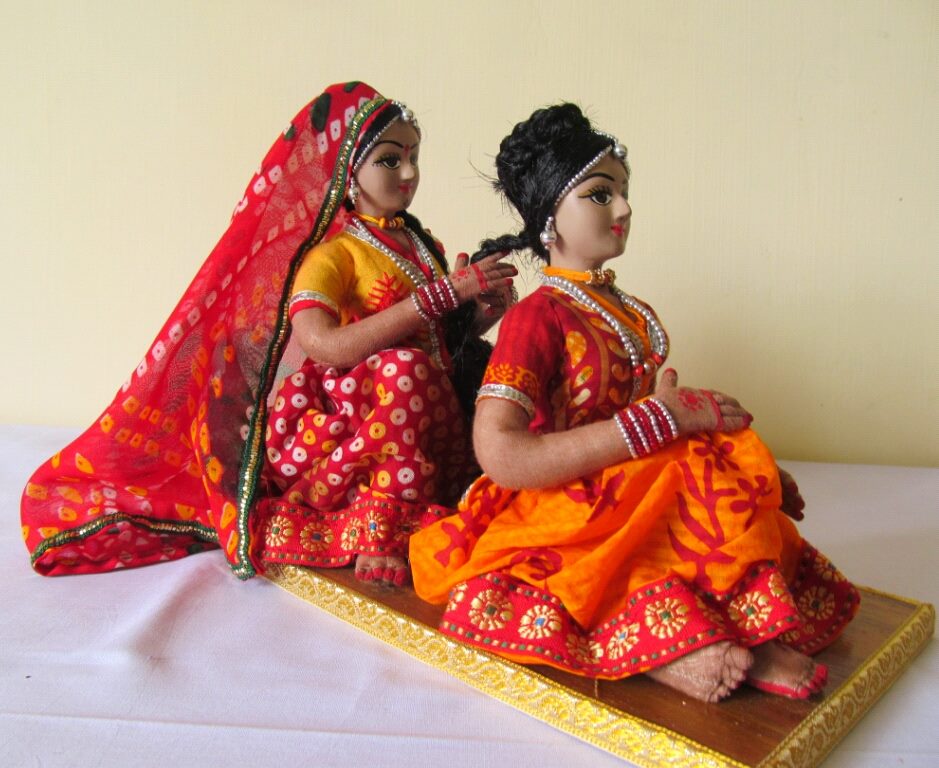
Shobha also worked on perfecting her hand skills, which would make the dolls stand out.
The first batch of dolls was inspired by village scenes including a woman cutting crops while carrying her baby in a cloth around her waist, men cutting firewood, mahua sellers, women dancing Jhumar, a vendor with weighing scales, and so on. She carved and hand-stitched every prop with utmost precision.
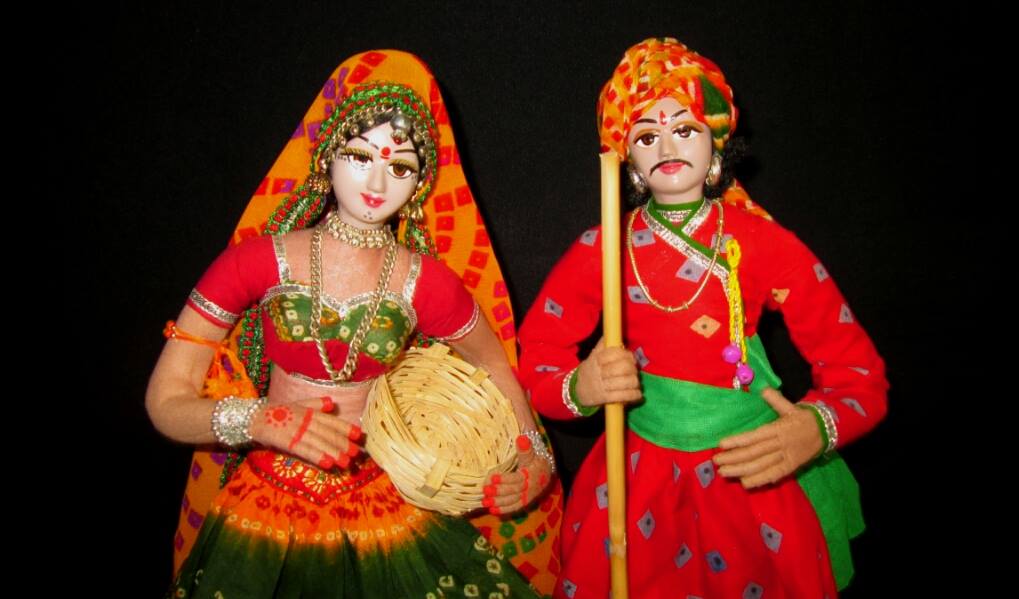
Eventually, she began including cultures from other parts of the country. Today, her collection boasts of a group of Meerabais in vibrant orange saris; a wide-eyed bride; Rajasthani folk singers with tablas, veenas and harmoniums; bhangra dancers; Bharatnatyam dancers in neatly pleated purple costumes; two Gujarati women braiding their hair; girls in flowing ghagras, and many others. The dolls come in varying sizes — from two inches to five feet. They are sold individually as well as in groups.
Shobha began selling the products door-to-door in her immediate neighbourhoods, and then as more customers came in, she set up stalls, fairs and weekly haats (bazaars) in the city. She says the maximum number of sales, even today, occur in the haats, thus proving that one does not need a huge showroom or shop to make sales.
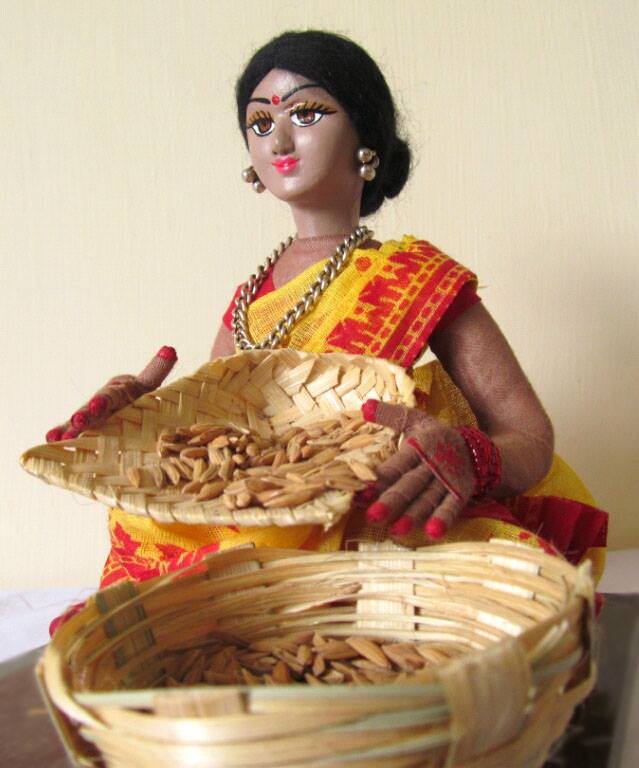
“I never believed in extravagant marketing gimmicks. If your product is of superior quality and different from what others are selling, you will make money. Just be honest in your work,” she says.
Along with selling dolls, she also started free training sessions for women. These included widows, domestic helps, and women with alcoholic husbands. She has trained over a thousand women. Shobha says none are obligated to work with her — they are free to start their own brand or take her help for marketing. Once the training is over, Shobha does not shy away from sharing her trade secrets.
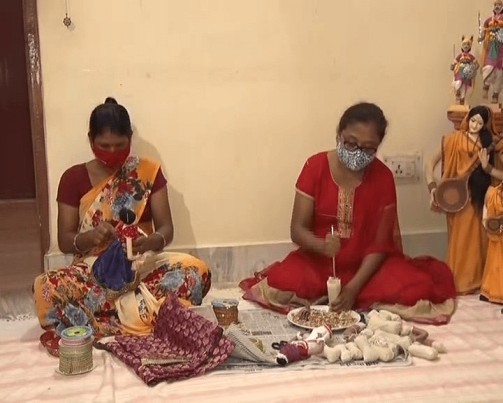
At present, around 40 women are working under Shobha, and religiously follow the ethics and principles set by her. It is no wonder that each woman spends anywhere between 25-30 hours on one doll.
Even though the enterprise receives several orders, they only sell a limited number of dolls per month. This is the primary reason behind the high price of each doll. Shobha believes that each employee’s hard work and time is worth the money.
“At the end of the day, the fundamental goal is to make women financially independent by giving them a chance to earn as much as possible,” she adds.
Edited by Divya Sethu
If you found our stories insightful, informative, or even just enjoyable, we invite you to consider making a voluntary payment to support the work we do at The Better India. Your contribution helps us continue producing quality content that educates, inspires, and drives positive change.
Choose one of the payment options below for your contribution-
By paying for the stories you value, you directly contribute to sustaining our efforts focused on making a difference in the world. Together, let’s ensure that impactful stories continue to be told and shared, enriching lives and communities alike.
Thank you for your support. Here are some frequently asked questions you might find helpful to know why you are contributing?


This story made me
-
97
-
121
-
89
-
167













